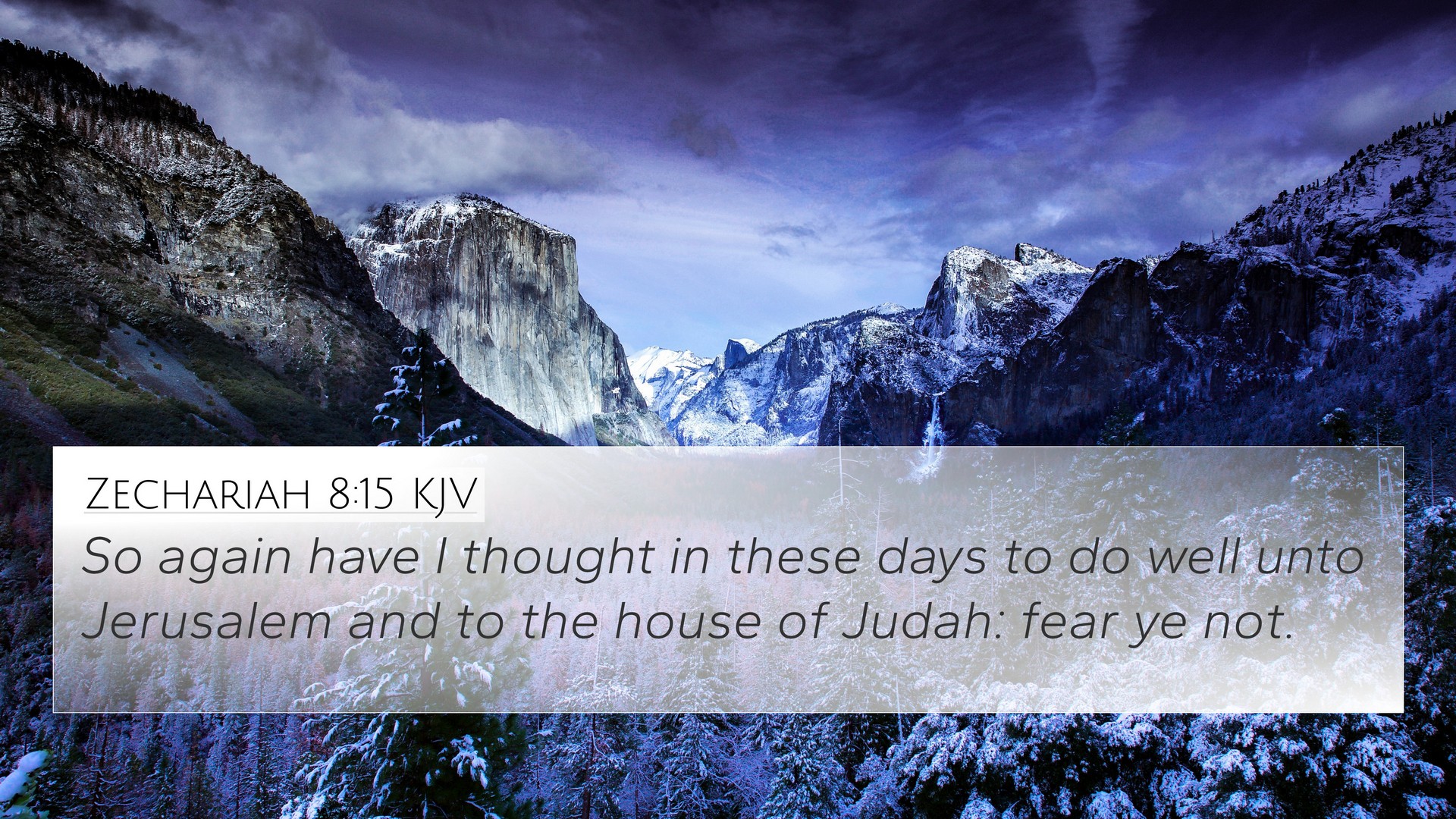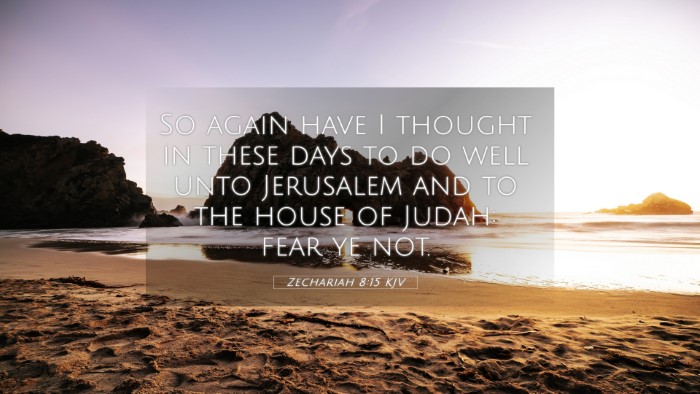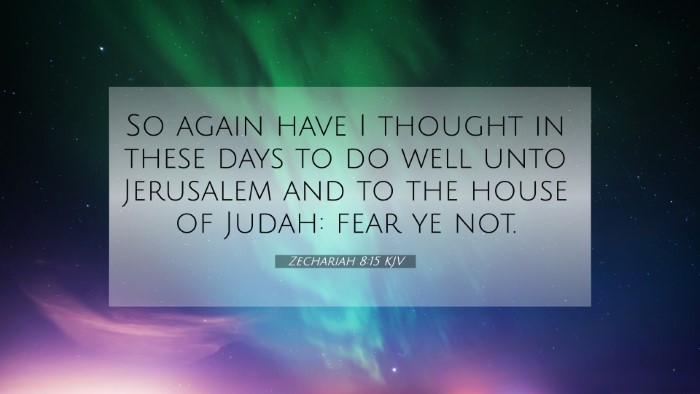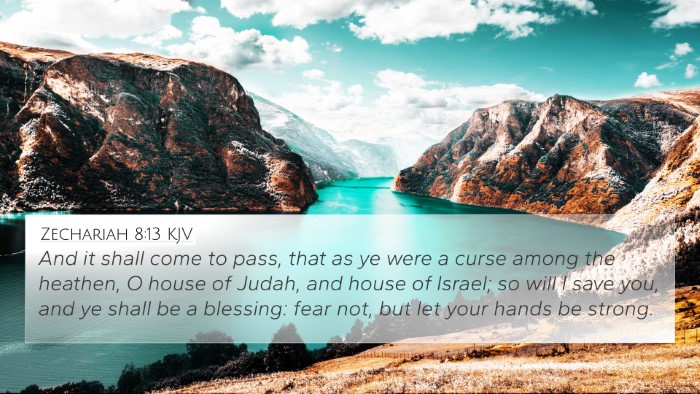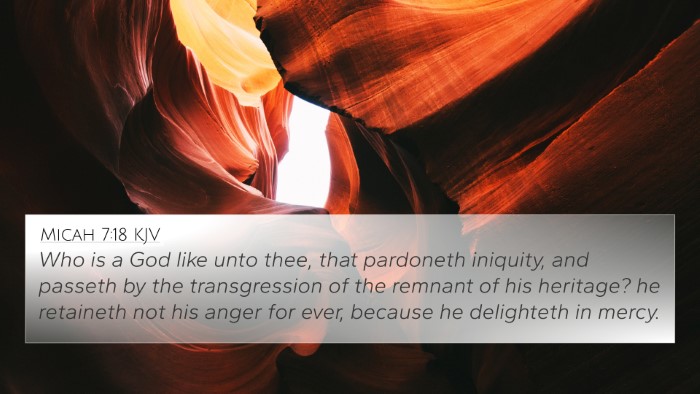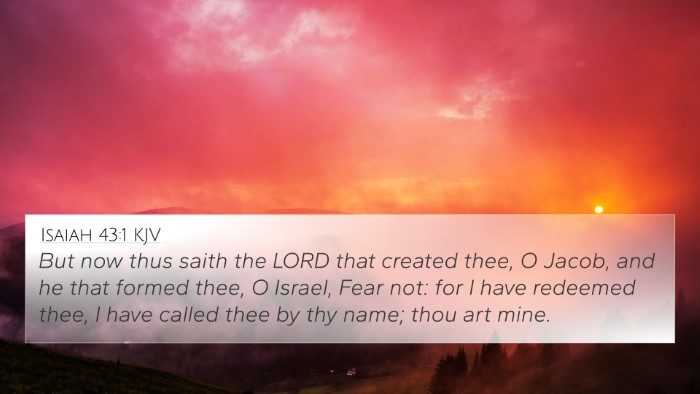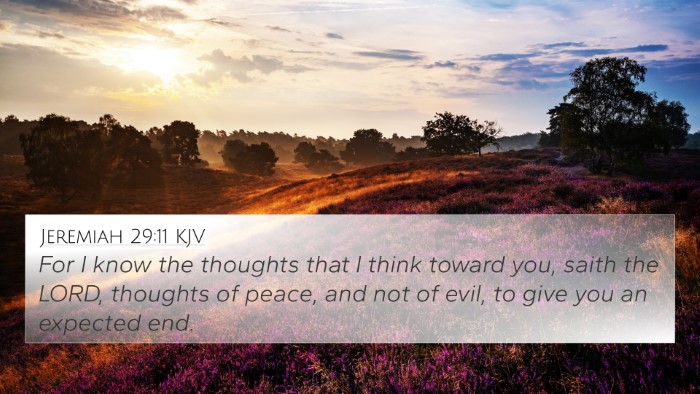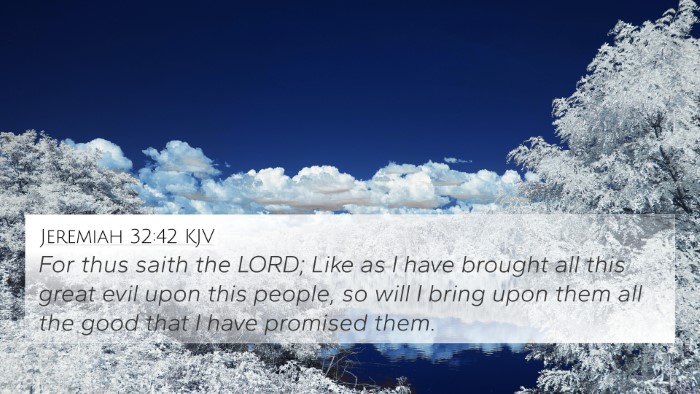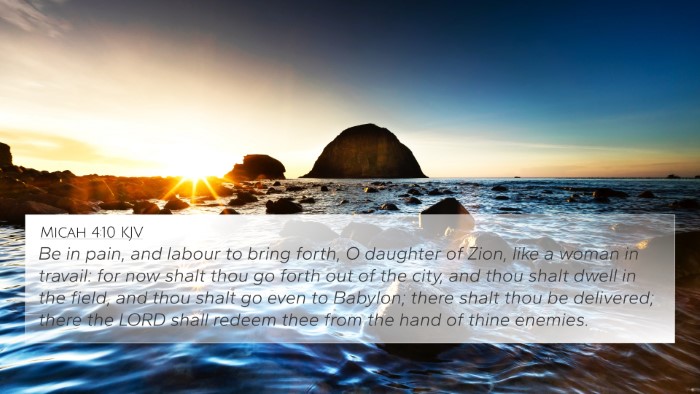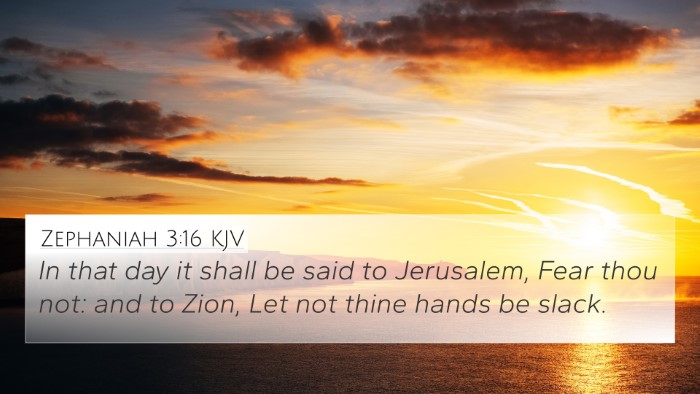Understanding Zechariah 8:15
Bible Verse: Zechariah 8:15 says, "So have I thought in these days to do well unto Jerusalem and to the house of Judah: fear ye not." This verse presents a message of reassurance and divine intention towards Jerusalem and the people of Judah.
Summary of the Verse Meaning
The context of Zechariah 8 speaks to a period of restoration for the Jewish people after their return from Babylonian exile. In verse 15, the prophet Zechariah conveys a divine promise that God has favorable plans for His people, which serves as an encouragement amidst their struggles.
Commentary Insights
- Matthew Henry: Henry emphasizes God’s goodwill towards His people despite their trials. He explains that the phrase "I thought" indicates a resolved intention on God's part to bless them and promote their welfare, underscoring God's continual providence and compassion.
- Albert Barnes: Barnes notes the transition from the 'retributive' justice of God to His grace and mercy. He interprets God’s promise as a motivation for the people to "fear not," implying that faith should replace fear as God is determined to ensure their prosperity.
- Adam Clarke: Clarke focuses on the underlying promise of peace and security in Jerusalem. He connects the notion of divine thoughtfulness to the overall theme of restoration, highlighting that God holds the future of His people in His hands, ensuring their safety and well-being.
Cross-References for Zechariah 8:15
This verse can be cross-referenced with several other scriptures that share thematic elements of God’s promises and assurance:
- Isaiah 41:10 - "Fear thou not; for I am with thee: be not dismayed; for I am thy God."
- Jeremiah 29:11 - "For I know the thoughts that I think toward you, saith the LORD, thoughts of peace, and not of evil, to give you an expected end."
- Hebrews 13:5 - "For He hath said, I will never leave thee, nor forsake thee."
- Romans 8:31 - "What shall we then say to these things? If God be for us, who can be against us?"
- Joshua 1:9 - "Have not I commanded thee? Be strong and of a good courage; be not afraid, neither be thou dismayed: for the LORD thy God is with thee whithersoever thou goest."
- Psalm 46:1 - "God is our refuge and strength, a very present help in trouble."
- Micah 7:18 - "Who is a God like unto thee, that pardoneth iniquity, and passeth by the transgression of the remnant of his heritage?"
Thematic Connections
This verse serves as a powerful reminder of the overarching themes of hope, restoration, and divine presence found throughout the Bible. By employing cross-referencing Biblical texts, we can appreciate how Zechariah 8:15 complements these pervasive messages:
- Hope in Adversity: Much like in the verses from Isaiah and Jeremiah, God's assurance to Judah exemplifies His unwavering commitment to bring hope, even during hardship.
- Divine Assurance: The repeated call to "fear not" ties Zechariah to New Testament promises, showing how God's faithfulness transcends time.
- Restoration Theme: Jeremiah 29:11 echoes the restorative promise as a unifying thread between the Old and New Testament.
Applying Cross-References in Study
Understanding the connections between Bible verses enhances our comprehension of theological concepts. Here are some tools and methods for engaging in cross-reference Bible study:
- Using a Bible concordance to locate terms or phrases that link verses together.
- Utilizing a Bible cross-reference guide during personal study to see thematic connections.
- Engaging in cross-referencing Bible study methods to uncover deeper meanings across different scriptures.
Conclusion
The exploration of Zechariah 8:15 offers rich insights into God's character and His dealings with humanity. Through scriptural cross-referencing, believers can enrich their understanding of biblical themes, reinforcing the relational dynamics between God and His people. This careful analysis not only serves academic pursuits but is also a practical tool in personal faith journeys.
